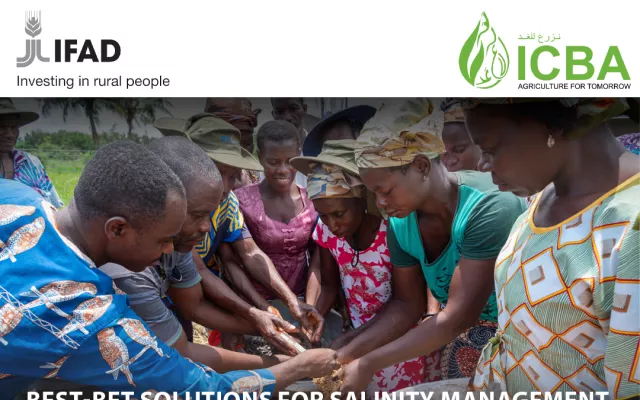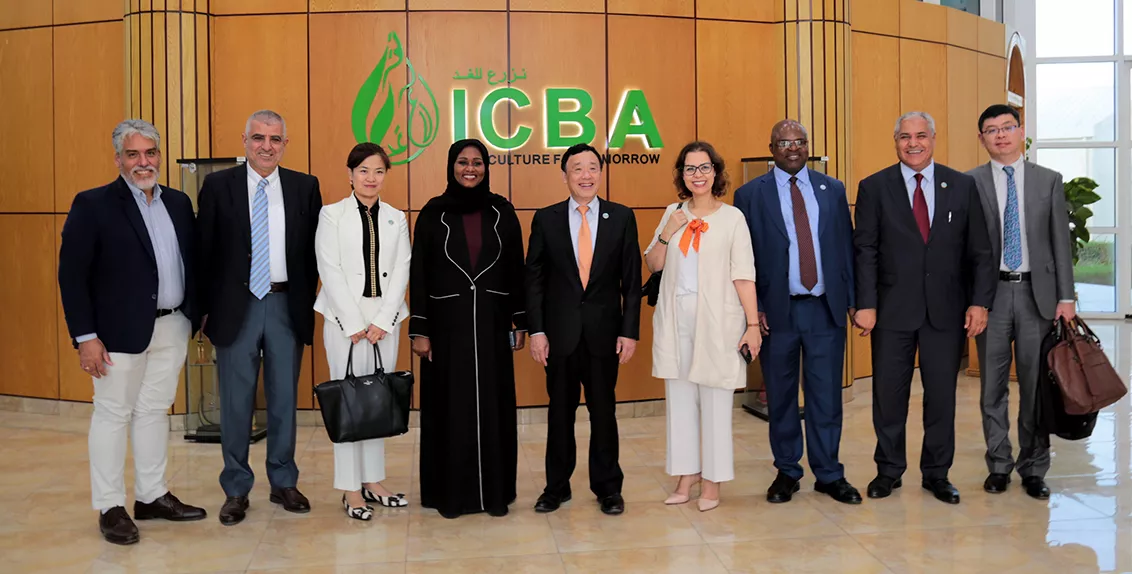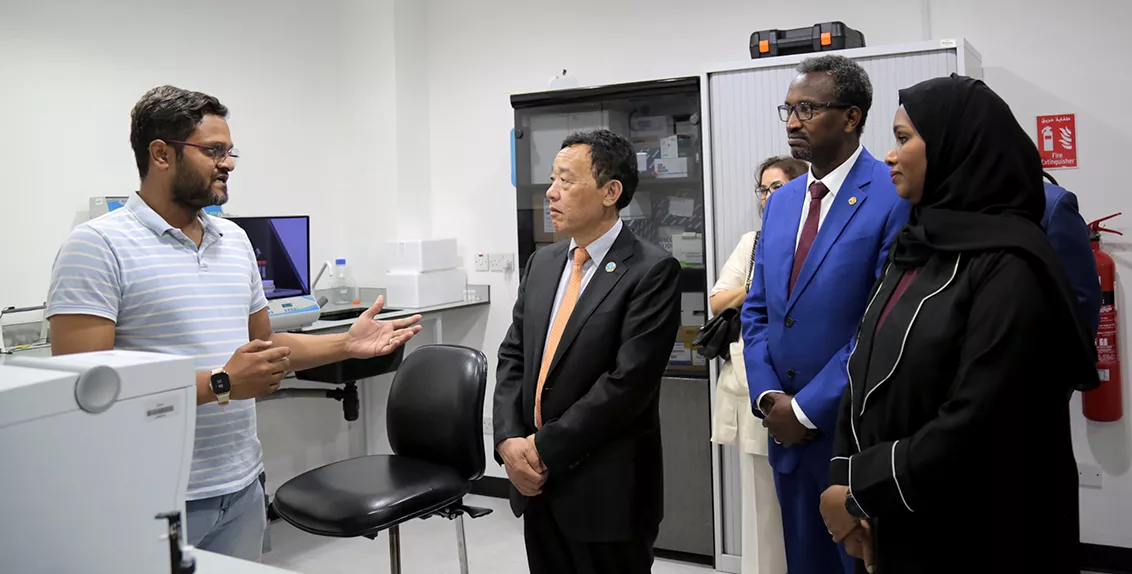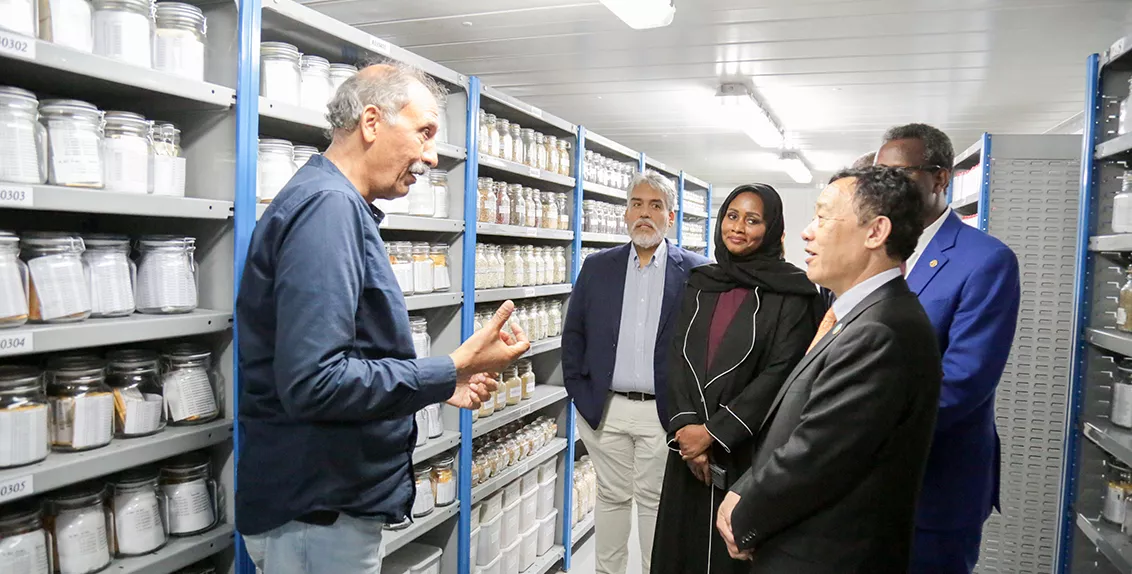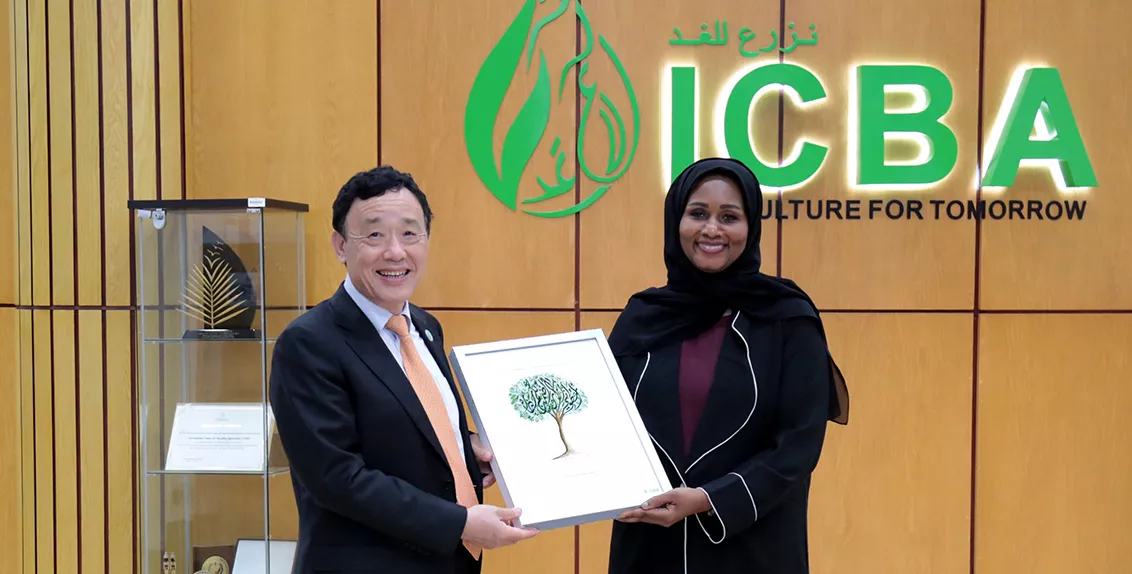ICBA, FAO strengthen partnership to drive agrifood systems transformation
13 June 2023
The International Center for Biosaline Agriculture (ICBA) and the Food and Agriculture Organization of the United Nations (FAO) have reaffirmed their joint efforts to accelerate transition to more sustainable and resilient agrifood systems.
During a high-level FAO delegation visit to the center’s head office in Dubai, the UAE, Dr. Tarifa Alzaabi, Director General of ICBA, and Dr. QU Dongyu, Director-General of FAO, emphasized the importance of bolstering collaboration to support countries in their goals to transform agrifood systems, and mitigate and adapt to climate change.
Dr. Tarifa Alzaabi, Director General of ICBA, said: “We are delighted to welcome Dr. QU Dongyu to our center today. We have a long-running strategic partnership with FAO and this visit symbolizes our shared commitment to achieving Sustainable Development Goals (SDGs) – in particular SDG 2 of Zero Hunger – through science and innovation. We have implemented a number of successful initiatives aimed at improving food security and livelihoods, enhancing natural resources management, and developing individual and institutional capacities in various countries. By combining our capabilities, we can create innovative and transformative solutions for the challenges facing agrifood systems and achieve greater synergy and impact.”
“As the UAE marks the Year of Sustainability and prepares to host COP28, it is important to work together towards a more sustainable future at local and international levels. More than ever, we need solidarity and collective action to tackle global issues such as climate change,” Dr. Tarifa Alzaabi added.
Dr. QU Dongyu, Director-General of FAO, recognized ICBA as an important research and development partner, highlighting the center’s contributions to FAO projects in the Middle East, North Africa, and other regions. He expressed FAO's commitment to strengthening collaborations with partners like ICBA to achieve SDGs and create a food-secure future for all.
During the visit, ICBA’s management team and the FAO delegation shared the outcomes of collaborative projects to date, discussed current cooperation in different areas, and explored new opportunities for research and development, knowledge and technology transfer, and capacity development.
As part of the visit, Dr. QU Dongyu, Director-General of FAO, also toured ICBA’s research facilities and experimental fields, including the Desert Life Sciences Laboratory, a dedicated advanced genomic research facility; the date palm plantation, where studies are conducted to determine the long-term effect of saline water irrigation on date palm growth, productivity, and fruit quality; and the genebank, which stores over 16,000 accessions of around 300 drought-, heat-, and salt-tolerant plant species from more than 150 countries and territories, one of the largest such collections in the world.
Since 2015, ICBA and FAO have collaborated in different countries to increase agricultural productivity, improve food security and nutrition, enhance water security, and ensure better livelihoods through climate-smart, resource-efficient farming practices and technologies.
This collaboration has covered, among other things, such areas as the promotion of biosaline agriculture under the Global Framework on Water Scarcity in Agriculture (WASAG); the management and restoration of degraded lands under FAO’s Global Soil Partnership (GSP); and the conservation and sharing of plant genetic resources under Article 15 of the International Treaty on Plant Genetic Resources for Food and Agriculture.
The two organizations have also conducted several projects aimed at strengthening resilience against sand and dust storms; unlocking the potential of protected agriculture; combatting red palm weevil; and promoting neglected and underutilized crops.
Moreover, ICBA has worked since 2020 with the FAO elearning Academy, a platform offering online courses on a wide range of subjects to stakeholders around the world. Through this collaboration, ICBA has supported the development of various learning resources and courses in Arabic.







